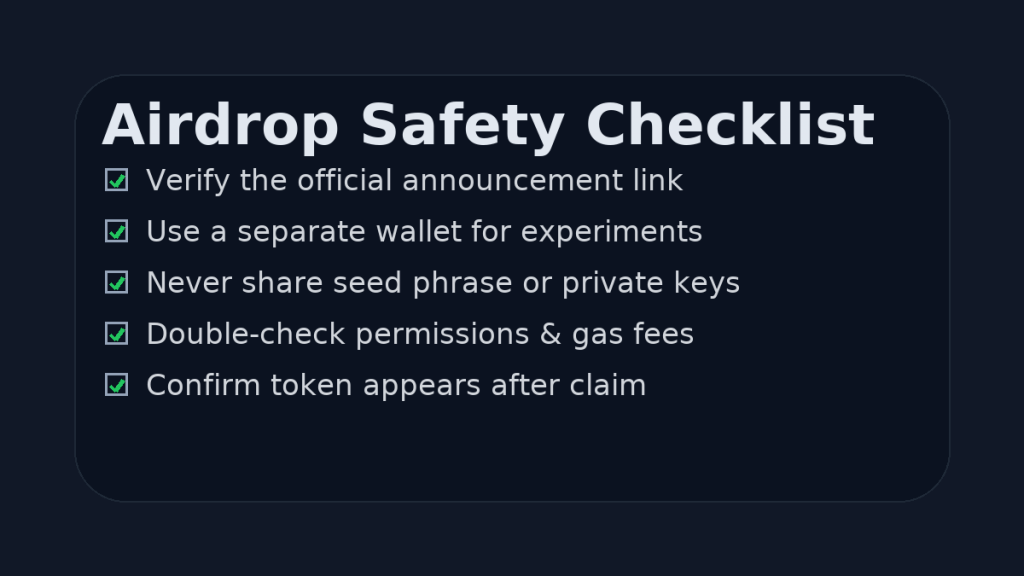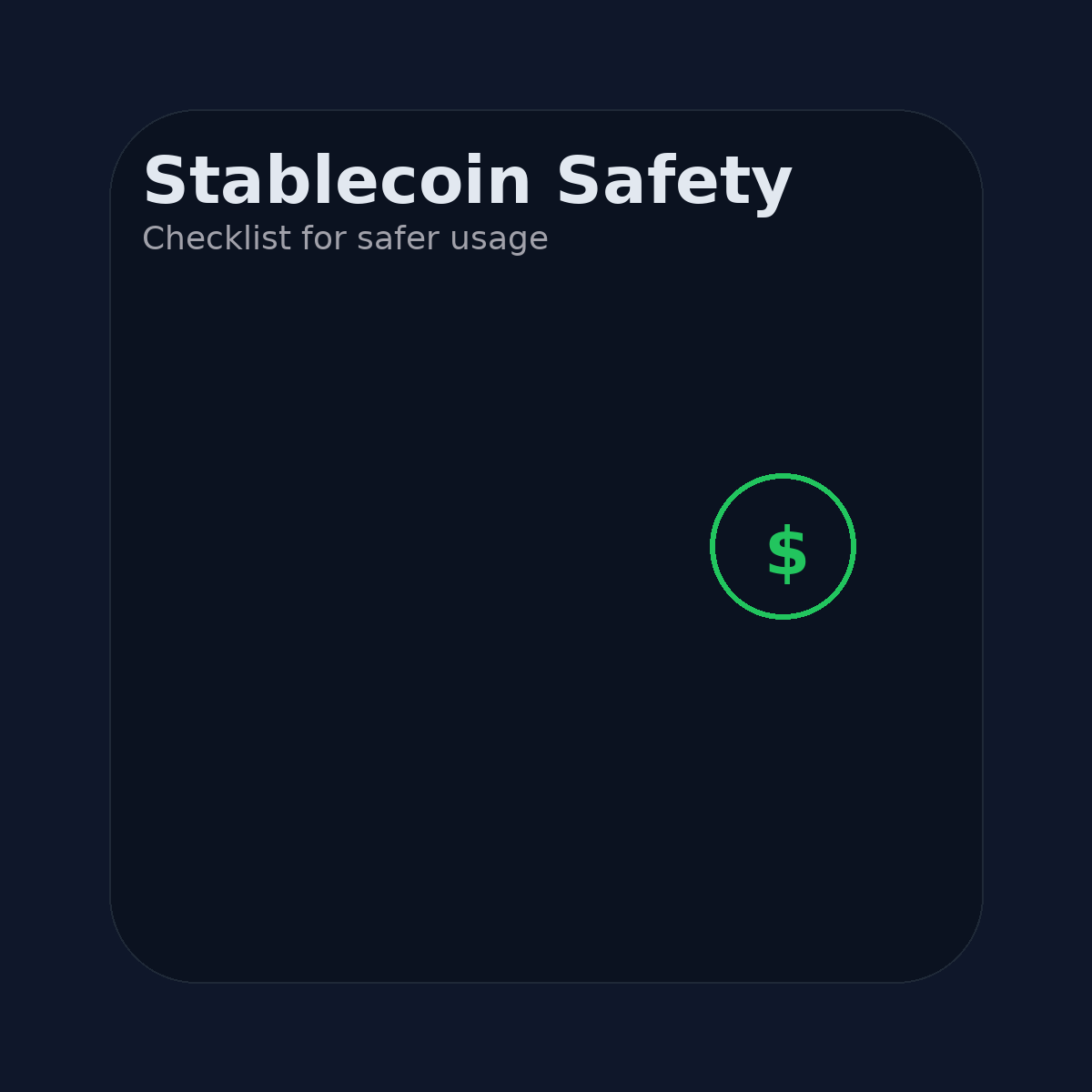Crypto projects sometimes distribute free tokens to early users or specific communities – this is called an airdrop. This demo post shows how I structure and format a typical article in Gutenberg: headings, lists, a quote, a table, images with alt text, an embed, and a call‑to‑action.
What Is an Airdrop?
An airdrop is a promotional token distribution. Projects use it to reward early adopters, decentralize ownership, or kick‑start community engagement.
Pro tip: Always verify the official announcement channel before connecting a wallet or signing any transaction.
Why Projects Do Airdrops
- Reward testers and early community members
- Distribute governance tokens more widely
- Encourage usage of a new network or feature
How People Qualify
Common criteria include:
- Holding a specific NFT or token
- Completing on‑chain tasks (swaps, bridges, staking)
- Using a dApp during a test period
Risks & Safety Checklist
- Never share seed phrases or private keys
- Beware of impersonation links (double‑check URLs)
- Use a separate wallet for experimental activity
- Confirm network fees and permissions before signing
Basic Claim Steps (example flow)
- Open the project’s verified website page.
- Connect wallet (read the permissions first).
- Check eligibility; if eligible, click Claim.
- Review gas fees; confirm the transaction.
- Verify tokens appear in your wallet assets list.
Simple Comparison Table
| Aspect | Airdrop | Giveaway |
|---|---|---|
| Purpose | Reward users/community | Marketing/awareness |
| Criteria | On-chain actions or holdings | Social actions (follow/RT, etc.) |
| Delivery | On-chain transfer | Manual or custodial |
Video: What Is a Crypto Airdrop?
Quick 3-min explainer on airdrops:


FAQ
Do I pay taxes on airdrops? Tax treatment varies by jurisdiction; consult local guidance.
Are all airdrops safe? No, verify sources and never share private.
Ready to publish similar guides with clean formatting?
